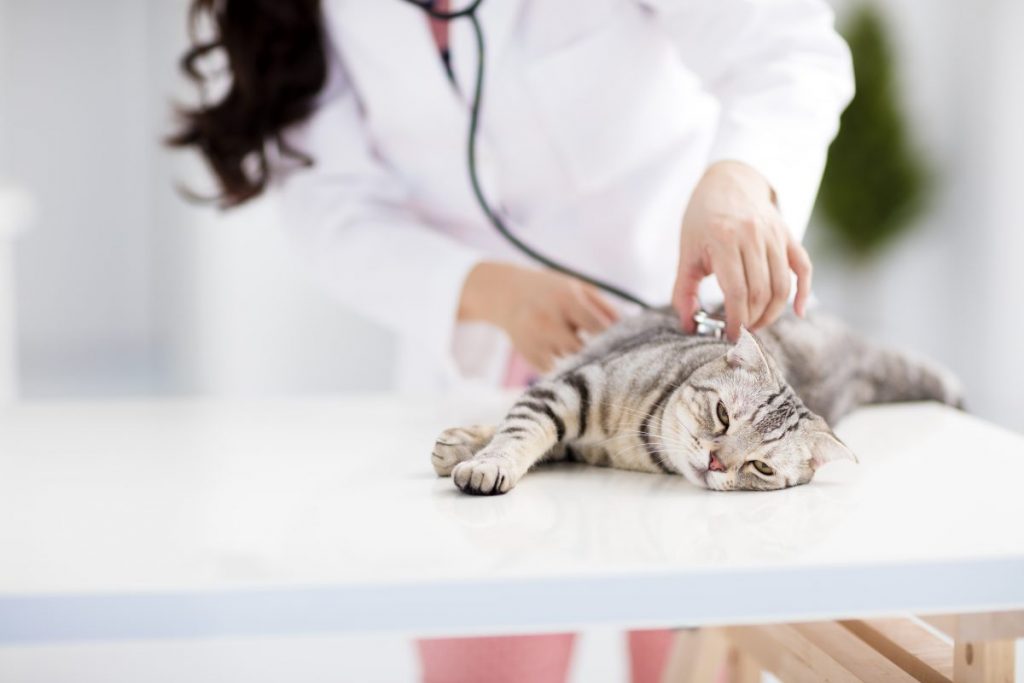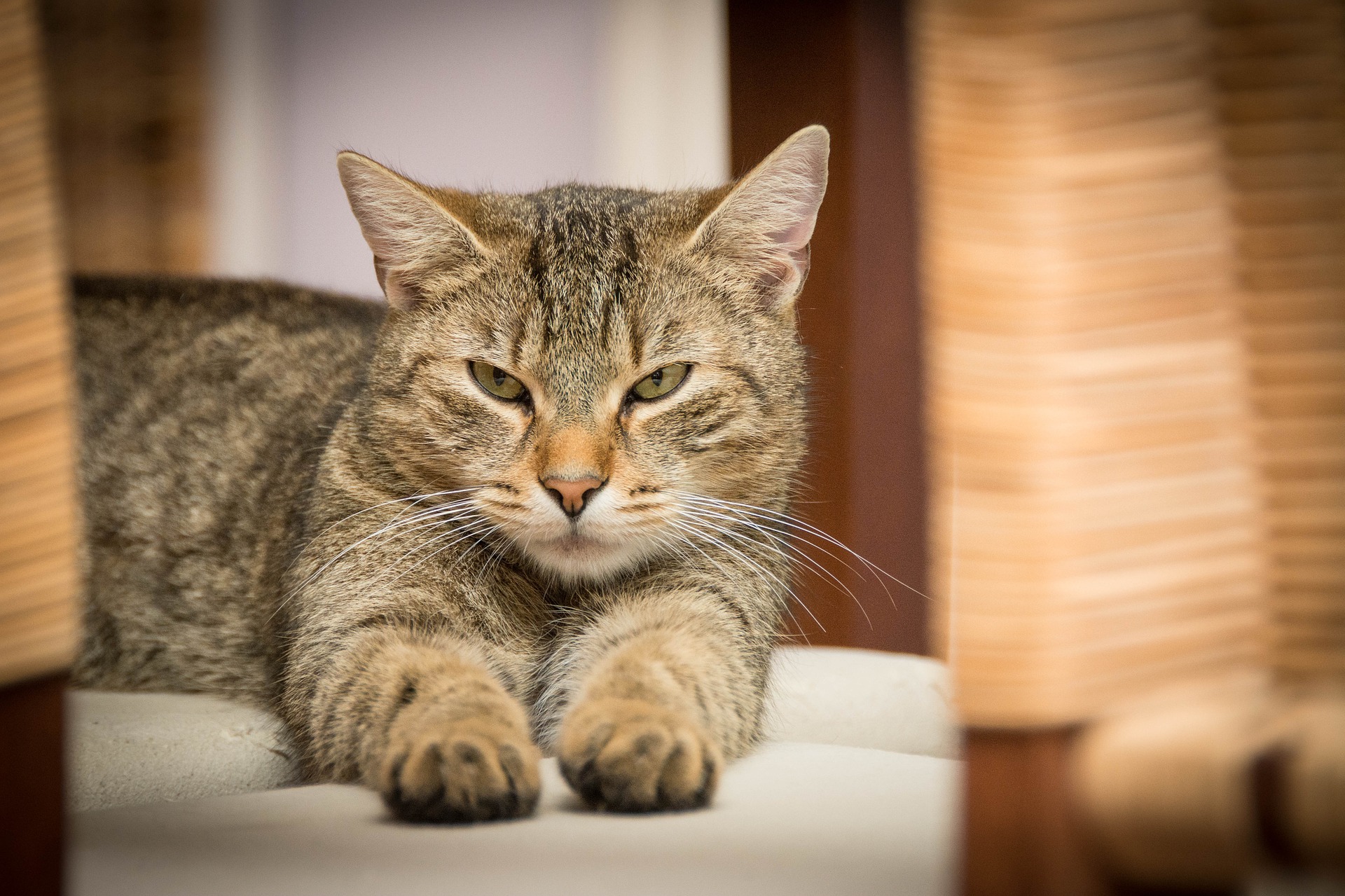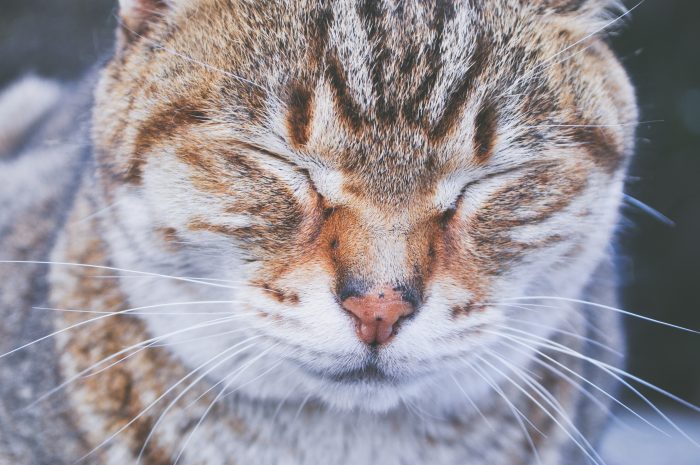While cats tend to age more gracefully than dogs, they often experience numerous health problems in their later years. It is important to look out for signs of discomfort in your senior cat in order to make their older years more comfortable and enjoyable.
By paying attention to the common health problems discussed below, you will be able to keep your kitty happy and healthy for years to come!
Chronic Renal (Kidney) Disease
Just like humans, a cat’s kidneys filter out waste products from the body. Kidneys act as a filtration system that remove waste products and toxins from the body via urination and excretion. When a cat’s kidneys are damaged, either due to a medical condition or old age, the waste products are no longer properly filtered. This causes a buildup of waste in your cat’s blood stream, known as azotemia, which leads to chronic renal disease.
Common symptoms of kidney disease include weight loss, lack of appetite, vomiting, and increased thirst. By looking out for these signs and symptoms of kidney failure in your cat, you can seek medical attention from your vet early on allowing the vet to have more time to treat the condition.
Heart Disease
Unfortunately, there are numerous types of heart diseases that cats can contract in their senior years. One of the more common diseases is cardiomyopathy, which is a disease of the heart muscle that causes the walls around the heart to thicken and the heart to enlarge. The disease is typically inherited in purebred cats and often develops midlife.
Symptoms of heart disease in cats include difficult or rapid breathing, blue or grey gums or tongue, loss of appetite, lethargy, or hind limb paralysis. If you think your cat could be experiencing one or many of these symptoms, seeking medical advice is recommended.
Arthritis
Arthritis typically occurs in older cats due to the natural weakening of bones and aging process in cats. Oftentimes, arthritis is mistaken for typical aging changes, however, arthritis is much more painful than your average aches and pains.
Typical signs of arthritis in cats include becoming less active, sleeping more, and lack of agility. Arthritis should not be ignored. Adapting your cat’s environment to be more easily accessible (minimizing high perches, for example) will make your cat much more comfortable.
Diabetes Mellitus
Diabetes mellitus is typically more common in overweight cats. Diabetes causes increased blood glucose levels, resulting in the need for insulin injections. It is important to diagnose diabetes in your cat early on so you can give them the proper treatment injections in order to elongate their life and keep them more comfortable. Common signs of diabetes include increased thirst and urination, change in appetite, weight loss, vomiting and change in normal activity. For more information about feline diabetes, refer to this helpful guide.
Hyperthyroidism
Hyperthyroidism is a disease of the thyroid gland where excessive amounts of thyroid hormone are produced. The effects of hyperthyroidism vary on a case by case basis. However, some common symptoms to watch out for include weight loss, increased (or decreased) appetite, increased thirst, increased activity, increased heart rate, and a poor coat. Due to the fact that there are varying symptoms that can occur, it is important to receive a proper diagnosis from a trained veterinarian.
Cancer
Sadly, much like humans, cancer is quite common in cats. There are numerous types of cancers with varying symptoms. Because of this, senior cat owners should take their cat to the vet more frequently for proper examinations to try to catch potential cancerous cells and tumors in the earliest stages.
Feline leukemia virus and oral squamous carcinoma are two common types of cancer in cats. However, there are preventative vaccinations for both of these cancers that help to reduce the chances of your cat developing these cancers.
Decreased Appetite and Weight Loss
You may have noticed that a decrease in appetite or significant weight loss can indicate many different health issues. It is important as a pet owner, specifically of senior cats, to look out for these signs and take your cat to the vet should you notice these symptoms. It is better to lie on the safe side of things and allow a veterinarian to properly diagnose and treat your furry friend then to wait until the symptoms get worse.
Cats are selfless creatures and are quite good at masking their health problems even in their senior years of life. It is your job to pick them up when they’re down and be perceptive to their needs.






